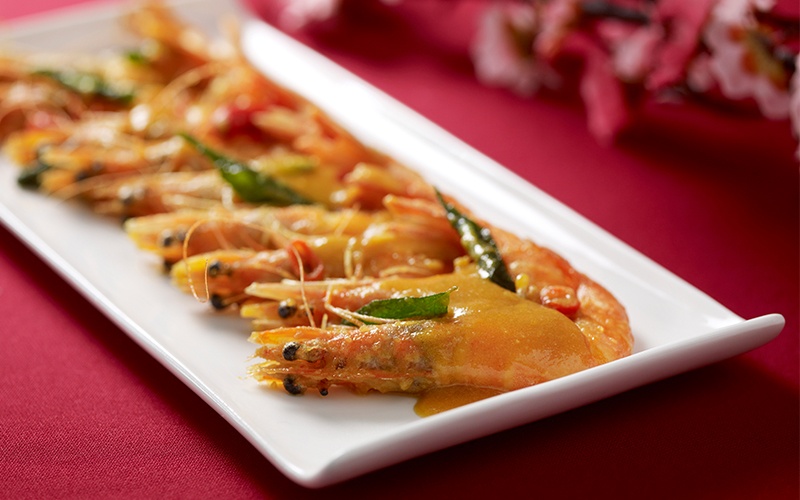The Nostalgia of Penang's Lor Bak
“You know, the best ones you can ever find are those sold at getai festivals in Penang,” quips Chef Wong as he lays out the ingredients. The Executive Chef at Penang Culture, Singapore’s first Halal Penang restaurant chain, has granted us access into his kitchen to watch the making of Lor Bak.
Do not be mistaken, however, we are not referring to a pot of braised meat. To Malaysians, Lor Bak is a deep-fried roll of five-spice marinated meat – what we’d call Ngoh Hiang locally. 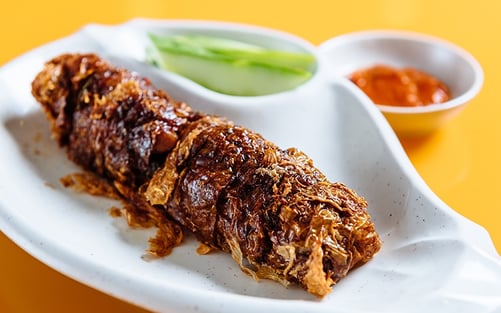
As Chef Wong recalls, Lor Bak is traditionally prepared during Chinese festive occasions for family reunion meals or ancestral worship. He picks up a plump stalk of leek, inhales its fresh scent, then continues his story, “The vendors go wherever the getais go. Every time they return to my neighbourhood, the Lor Bak will taste as good as I remember it to be.”
Penang Culture opted to be a Halal restaurant years ago.
This decision kicked off their long and intensive R&D journey in creating the Lor Bak with chicken, without losing its authentic flavour.
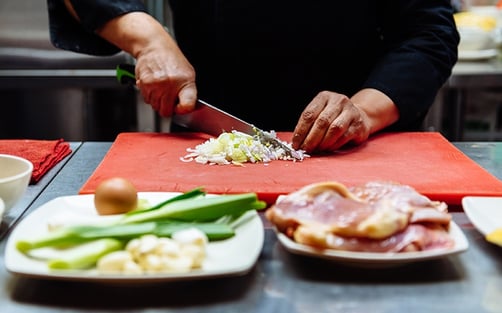
Within a few moments, Chef Wong’s Head Chef is done with chopping leeks, onions, garlic and fresh chicken for the filling. “In Malaysia, we keep our ingredients really simple. We don’t add prawns. We don’t mince our meat too. We like our rolls chunky.”
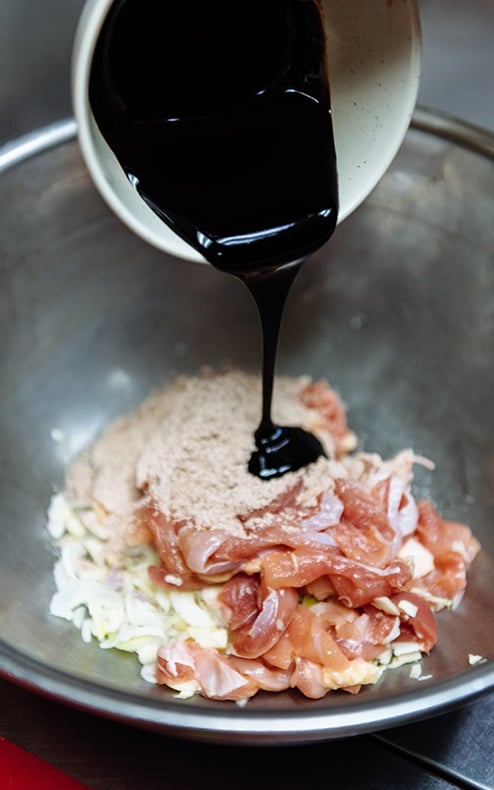
Traditionally, Lor Bak is prepared with whole strips of pork. However, Penang Culture opted to be a Halal restaurant years ago. This decision kicked off their long and intensive R&D journey in creating the Lor Bak with chicken, without losing its authentic flavour. Chef Wong’s ingenious solutions include the choice of chicken cut – the restaurant only uses chicken thighs, the fattiest part of the bird. This cut also happens to be perfect at soaking up the marinating sauce.
Chef Wong reckons that having a good five-spice marinating sauce is the most important step in retaining the original flavour of Lor Bak.
He shows us how the chicken is mixed with the freshly chopped veggies and are sent into the fridge to sit for 24 hours before even being rolled up. “So now you know, before you guys come and pick it up for catering, so much time has been spent on it!”
The flavours of the Lor Bak filling can only be justified through the use of unsalted dried beancurd skin. “We do this so that the natural flavours can come through,” Chef Wong highlighted, stating that many places make the mistake of wrapping the filling with salted dried beancurd skin which results in the dish being overly salty.
He lays out a sheet on the counter top like an artist preparing to work on a blank canvas. A man of precision, Chef Wong weighs out an amount of filling and proceeds to churn out rolls of Lor Bak with seasoned hands. Each one looks like a carbon copy of the previous.
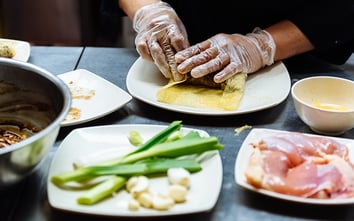

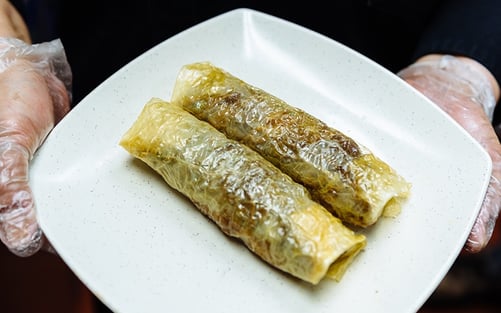
Anyone would’ve thought that putting a labour-intensive dish onto a catering menu would be a bad idea. But Chef Wong believes otherwise. “Lor Bak is one of Penang’s signature dishes. It’s only right to offer it to the customers so that they can have an authentic Penang meal.” How will the kitchen crew cope if there’s a large catering order, we ask. “Making 100 rolls in an hour is not a problem for me”, he proudly answers. Clearly, Chef Wong is unfazed by a challenge.
Shortly before the rolls are thrown into the burning oil, Chef Wong waves us out of the kitchen. But we are not leaving without having a plate of Lor Bak.
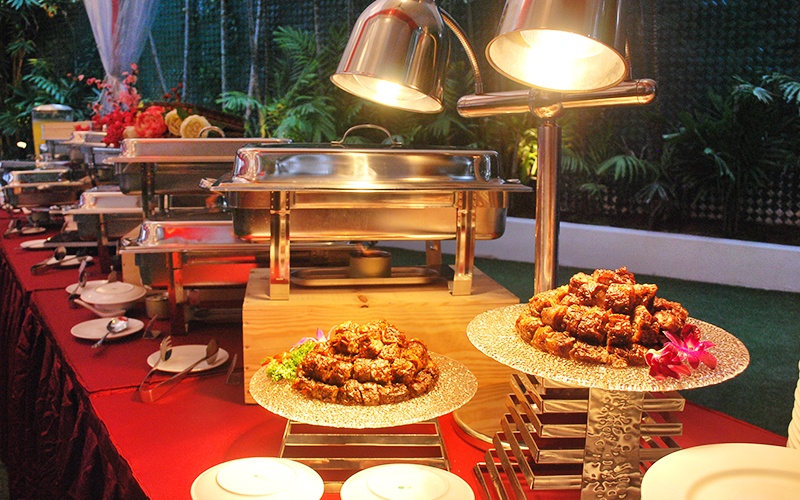
"It’s the quintessential Asian finger food, perfect for parties!"
![]()
A couple of minutes later, Chef Wong emerges from the kitchen with two crisp and toasty rolls. We dip each slice into a thick dark sauce called Lor in Hokkien; Lor Bak literally means meat with thick sauce. Though deep-fried, the chicken stayed juicy and succulent, the leeks retaining a subtle crunch. Someone comments that it’s the quintessential Asian finger food, perfect for parties.
“Chef, does this taste like the Lor Bak you have back home?” one of us asks.
Chef Wong smiles wryly and says, “tastes even better.”


